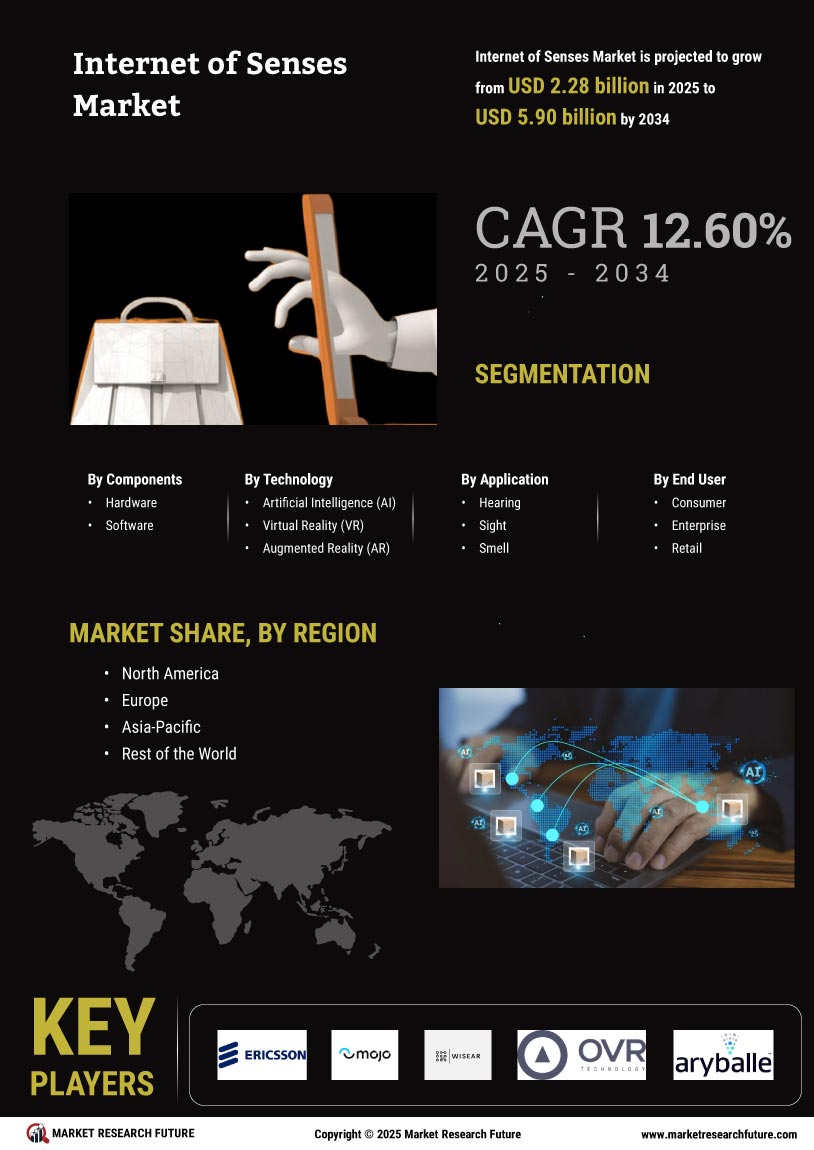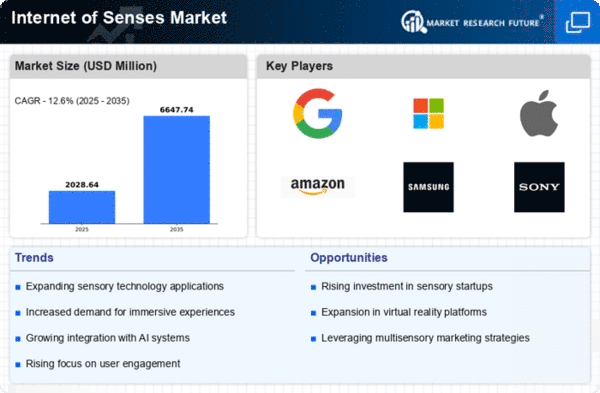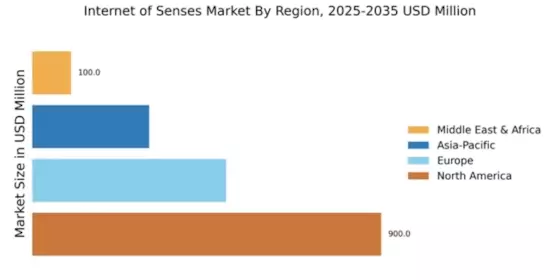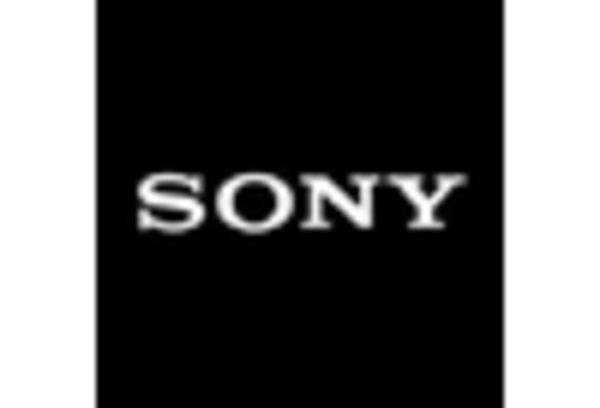Healthcare Applications
The application of Internet of Senses Market technology in healthcare is emerging as a significant driver within the Global Internet of Senses Market Industry. Technologies that enhance sensory experiences are being utilized for therapeutic purposes, such as virtual reality therapies for pain management and rehabilitation. These applications not only improve patient outcomes but also streamline healthcare processes. As the healthcare sector increasingly adopts these technologies, the market is expected to experience substantial growth, with projections indicating a rise to 6.64 USD Billion by 2035, reflecting the potential of sensory technology in improving healthcare delivery.
Technological Advancements
The rapid evolution of technology plays a pivotal role in the Global Internet of Senses Market Industry. Innovations in artificial intelligence, virtual reality, and augmented reality are enhancing sensory experiences, enabling users to interact with digital content in more immersive ways. For instance, advancements in haptic feedback technology allow users to feel sensations through devices, creating a more engaging experience. As a result, the market is projected to grow from 1.92 USD Billion in 2024 to 6.64 USD Billion by 2035, reflecting a compound annual growth rate of 11.95% from 2025 to 2035.
Integration of IoT and Smart Devices
The integration of Internet of Things (IoT) technology with smart devices is a crucial driver for the Global Internet of Senses Market Industry. As smart devices become more prevalent in everyday life, the potential for enhanced sensory experiences increases. For instance, smart home devices equipped with sensory technology can create personalized environments that respond to user preferences. This integration not only enhances user experience but also fosters greater connectivity among devices, leading to increased market growth. The anticipated expansion of the market to 6.64 USD Billion by 2035 underscores the importance of this integration.
Consumer Demand for Immersive Experiences
There is a growing consumer demand for immersive experiences, which significantly influences the Global Internet of Senses Market Industry. As consumers increasingly seek out engaging and interactive content, businesses are compelled to adopt technologies that enhance sensory experiences. For example, the gaming industry has seen a surge in demand for virtual reality games that provide users with a multi-sensory experience. This shift in consumer preferences is driving investments in sensory technologies, thereby contributing to the market's anticipated growth trajectory, with projections indicating a rise to 6.64 USD Billion by 2035.
Global Connectivity and Digital Transformation
The ongoing global connectivity and digital transformation are vital factors propelling the Global Internet of Senses Market Industry. As internet access expands and digital technologies become more integrated into daily life, the demand for sensory-enhanced experiences grows. This transformation is evident in various sectors, including education and entertainment, where sensory technologies are used to create more engaging learning environments and interactive content. The market's growth trajectory, projected to reach 6.64 USD Billion by 2035, highlights the impact of digital transformation on consumer expectations and industry innovation.

















